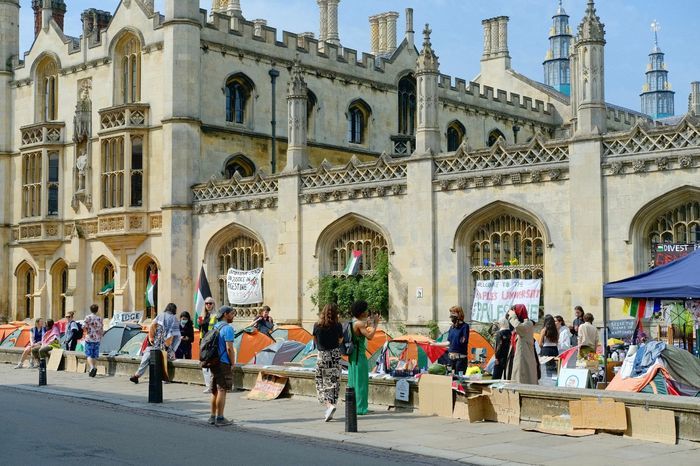Disabilities art display torn from walls of Cambridge University Hospital
The decision has reignited criticism of Addenbrooke’s Hospital following prior allegations of sexism and homophobia

A significant portion of a newly-installed art exhibit about living with disabilities has been removed by Addenbrooke’s Hospital just days after its unveiling.
The decision has sparked criticism and comes against a backdrop of previous accusations of sexism and homophobia at the hospital.
The artwork, part of the collection of the National Disability Arts Collection and Archive (NDACA), was intended to showcase the “significant heritage and rich history of the UK Disability Arts Movement”.
A staff member speculated to Cambridgeshire Live that the removal was caused by several elements which “could be considered rude”. These included “a t-shirt that said ‘p*** on pity’”.
However, the hospital’s intervention extended to non-controversial pieces, such as a mock sign that compared the timeline of the first moon landing to public transport becoming accessible, and another that read “don’t touch my wheelchair”.
Addenbrooke’s Hospital serves as the primary training hospital for Cambridge medical students. It is also a part of the University Hospitals Trust, which oversees Addenbrooke’s along with Rosie’s Hospital, a maternity hospital in Cambridge. The hospitals sit in the University’s Biomedical Campus, with Addenbrooke’s acting as a research centre as well as a University.
This is not the first time Cambridge University hospitals have been criticised over their conduct, with Varsity reporting on allegations of “sexism and homophobia” by hospital staff last year.
The hospital achieved only 41/165 points in an NHS Rainbow Badge Assessment, which tests commitment to reducing healthcare barriers for the LGBTQ+ community. It gained zero points on two of the assessment areas.
A spokesperson for Cambridge University Hospital said: “We are sorry that the removal of the artwork has caused some upset. We hope to display a number of pieces as part of a wider programme of events at CUH celebrating Disability History Month.”
 News / Pembroke to convert listed office building into accom9 December 2025
News / Pembroke to convert listed office building into accom9 December 2025 News / Uni Scout and Guide Club affirms trans inclusion 12 December 2025
News / Uni Scout and Guide Club affirms trans inclusion 12 December 2025 Features / Searching for community in queer Cambridge10 December 2025
Features / Searching for community in queer Cambridge10 December 2025 News / Uni redundancy consultation ‘falls short of legal duties’, unions say6 December 2025
News / Uni redundancy consultation ‘falls short of legal duties’, unions say6 December 2025 News / Gov declares £31m bus investment for Cambridge8 December 2025
News / Gov declares £31m bus investment for Cambridge8 December 2025









